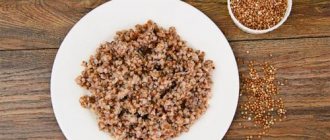How many calories are in a 2 egg omelette with milk?
The calorie content of 100 grams of an omelet made from two eggs is 172 kcal. That is, the calorie content of an omelet made from two eggs increases by the energy value of one egg (approximately).
After such a simple conclusion, it is easy to answer the question: “How many calories are in an omelet of 3 eggs with milk?” - 216 kcal.
You can reduce the calories in this omelet recipe by replacing the milk with water. After all, the calorie content of an omelet with milk is much higher than that of a cooked product with water.
And then the admirer of chicken eggs will not ask the question that is framed in the subtitle, but only: “How many calories are in an omelet made from 2 eggs?”
Below we will look at ways to reduce the calorie content of an omelet made from 2 yolks and 3 whites of eggs with milk.
Omelet: recipe
Initially, the omelette was prepared differently than we are used to. French chefs, who are considered the pioneers of the dish, simply mixed eggs with salt and pepper without adding other ingredients. Also, a distinctive feature of this dish was that the eggs were not beaten.
The recipe for an omelet is familiar to every housewife: you need to mix eggs with milk and fry the mixture in a frying pan. Of course, this is not the only variation in preparing the dish: some prefer to use sour cream, mayonnaise or cream instead of milk. Also sometimes the omelette is baked in the oven, steamed or in a bag.
How many calories are in an omelet with tomatoes?
The calorie content of an omelet with tomatoes increases by the energy value of vegetables: 100 g of tomato – 30 kcal. An omelet with tomatoes produces more liquid, which can be removed in various ways.
Tomatoes, bell peppers, pre-fried onions can be placed:
- In an omelette with sausage;
- In an omelette with ham;
- In an omelette with sausage;
- In an omelet with cheese, lard and other products with a high degree of fat content.
Nutritionists rightly believe that, taking into account the quality of modern sausage and dairy products, it is better to dilute an omelet with vegetables with “good” water, fry in vegetable (olive) oil, without any meat additives at all, sprinkle the finished product with various herbs (dill, parsley , basil). To reduce the energy value of an omelet, you can remove the yolk from the eggs by adding a certain amount of flour to the omelet (exactly how much depends on the person’s culinary preferences).
The benefits of omelet for weight loss
A dish made only from eggs with a small addition of low-fat milk can be called one of the most successful food options for weight loss supporters.
The benefits of eggs include the inclusion in the composition of a chicken egg:
- Vitamin A necessary for immunity, optimal condition of skin, hair and nails
- B vitamins that are beneficial for the immune system and nervous system.
- Vitamins of group D that promote natural vasodilation.
- Vitamin E, ready to heal wounds and strengthen the walls of blood vessels.
Good to know! This product also contains a large number of microelements and nutrients. Including magnesium, sodium, folic acid, iron, iodine and other components. Lutein helps break down bad cholesterol.
How many calories are in an omelette without yolk?
An omelette with vegetables without yolks (100 g) contains:
- Proteins – 7.6 g;
- Fat – 8.2 g;
- Carbohydrates – 2.6 g;
- The calorie content of the product is 111 kcal.
For many people, such an omelet recipe loses its taste, but the choice is up to the consumer: either food with less calories, or the taste of the product. In an omelet with vegetables, the absence of yolks in the product will not be so noticeable, since each vegetable brings its own individual “notes” to the dish.
Directions
Omelette
IngredientsDirections
Table 1
| Products | Weight | Squirrels | Fats | Carbohydrates |
| Chicken egg | 120 gr | 15.24 | 13.8 | 0.84 |
| Pasteurized milk 2.5% fat | 45 ml | 1.31 | 1.13 | 2.16 |
| Butter 82.5% fat, traditional | 10 g | 0.05 | 8.25 | 0.08 |
| Salt | 1 g | 0 | 0 | 0 |
| Exit | 150 | 16.6 | 23.18 | 3.08 |
Ways to reduce the calorie content of an omelet
- We prepare the product using household appliances. An omelet in a slow cooker or double boiler has slightly fewer calories. Naturally, such an omelette will not have the delicious crust that many people love;
- We reduce the number of eggs in the omelet to a reasonable limit and add various vegetables, herbs, do not use mayonnaise and ketchup;
- We prepare the omelette without yolks, using high-quality water (melt). Any lazy person who has a refrigerator with a freezer can prepare melt water;
- We prepare an omelette without using any oil (even the “favorite” of all nutritionists, olive oil).
Vitamin content
table 2
| Vitamins | Content | Daily norm |
| C (ascorbic acid) | 0.18 mg | 0.3 % |
| A (retinol) | 255.81 mcg | 25.6 % |
| E (α-, β-, γ-tocopherols) | 0.55 mg | 5.5 % |
| D (lamisterol) | 1.88 mcg | 75.1 % |
| B1 (thiamine) | 0.06 mg | 4.2 % |
| B2 (riboflavin) | 0.4 mg | 22.2 % |
| B3 (PP) (nicotinamide) | 3.15 mg | 16.6 % |
| B4 (choline) | 207.83 mg | 41.6 % |
| B6 (pyridoxine) | 0.12 mcg | 6 % |
| B9 (folacin) | 6.53 mcg | 3.3 % |
| B12 (cobalamin) | 0.48 mcg | 16 % |
Omelette contains vitamins with high, medium and low levels when considered according to the approved standards for the nutritional value of the dish.
At the highest level of importance in the food value chain are:
- A, takes part in all functions of the body related to its growth and proper metabolism, preserves the structure of the cornea of the eye.
- D, takes part in the formation of bone and dental tissue.
- B2, maintains body tone.
- PP, participates in the formation of hemoglobin.
- B4, is involved in the biosynthesis of heme and proteins, cell proliferation, and tissue respiration.
- B12 is involved in many metabolic processes in the body.
Vitamins at a medium level of importance include:
- E, keeps the muscular system in good shape.
- B6, participates in the metabolism of lipids and amino acids.
Vitamins of low content include:
- C, takes part in the redox processes of the body, raises the tone of the body, strengthens the immune system.
- B1, required to normalize the nervous and muscular systems.
- B9, supports the hematopoietic and digestive system.
How many calories are in an omelet without butter?
Calorie content of 100 grams of various oils with which most people prepare omelettes:
- Olive – 198 kcal;
- Sunflower – 578 kcal;
- Creamy – 748 kcal;
- Peanut and corn - 899 kcal each.
We remove 20 - 30 grams of oil from the recipe, and we get a significant saving in kilocalories consumed. Of course, you won’t be able to fry an omelette in a frying pan on a gas stove without any oil, but preparing a delicious product in the oven or slow cooker is easy and simple. You can also cook an omelet without oil in the microwave, but...
In our opinion, an omelette in the oven gives a special taste, because the product is cooked not only from below, as on a gas stove, but also from above. We are sure that most “second” dishes baked in the oven or multicooker are much tastier than those cooked on a gas stove.
In our opinion, an omelet in a microwave does not have that “flavorful zest” that makes a man say to a woman: “Thank you, dear, the omelet was delicious.” The microwave was invented not for gourmets, but for people who are constantly in a hurry to get somewhere.
Calculation of the calorie content of the recipe per 150 grams
The calculation of the calorie content of 150 grams of the recipe is based on the summarized indicators of BZhUK (abbreviation: proteins-fats-carbohydrates-acids) of the ingredients from table (1) involved in the preparation. The data was taken from the database of the “products” section of the website and brought into line with the final yield of the dish (net).
Our example involves proteins - 16.6 grams, fats - 23.18 grams and carbohydrates - 3.08 grams, contained in 150 grams of the recipe. Next we perform the calculation:
Energy value of 150 grams of recipe = 16.6 (proteins)*4 + 23.18 (fat)*9 + 3.08 (carbohydrates)*4 = 66.4 + 208.62 + 12.32 = 287.3 kcal
Calorie content Omelet. Chemical composition and nutritional value.
Nutritional value and chemical composition of “Omelette”.
The table shows the nutritional content (calories, proteins, fats, carbohydrates, vitamins and minerals) per 100 grams of edible portion.
| Nutrient | Quantity | Norm** | % of the norm in 100 g | % of the norm in 100 kcal | 100% normal |
| Calorie content | 154 kcal | 1684 kcal | 9.1% | 5.9% | 1094 g |
| Squirrels | 10.57 g | 76 g | 13.9% | 9% | 719 g |
| Fats | 11.66 g | 56 g | 20.8% | 13.5% | 480 g |
| Carbohydrates | 0.64 g | 219 g | 0.3% | 0.2% | 34219 g |
| Water | 76.13 g | 2273 g | 3.3% | 2.1% | 2986 g |
| Ash | 1.01 g | ~ | |||
| Vitamins | |||||
| Vitamin A, RE | 172 mcg | 900 mcg | 19.1% | 12.4% | 523 g |
| Retinol | 0.169 mg | ~ | |||
| beta carotene | 0.028 mg | 5 mg | 0.6% | 0.4% | 17857 g |
| beta Cryptoxanthin | 8 mcg | ~ | |||
| Lutein + Zeaxanthin | 423 mcg | ~ | |||
| Vitamin B1, thiamine | 0.034 mg | 1.5 mg | 2.3% | 1.5% | 4412 g |
| Vitamin B2, riboflavin | 0.386 mg | 1.8 mg | 21.4% | 13.9% | 466 g |
| Vitamin B4, choline | 247.6 mg | 500 mg | 49.5% | 32.1% | 202 g |
| Vitamin B5, pantothenic | 1.289 mg | 5 mg | 25.8% | 16.8% | 388 g |
| Vitamin B6, pyridoxine | 0.143 mg | 2 mg | 7.2% | 4.7% | 1399 g |
| Vitamin B9, folates | 39 mcg | 400 mcg | 9.8% | 6.4% | 1026 g |
| Vitamin B12, cobalamin | 0.76 mcg | 3 mcg | 25.3% | 16.4% | 395 g |
| Vitamin D, calciferol | 1.7 mcg | 10 mcg | 17% | 11% | 588 g |
| Vitamin D3, cholecalciferol | 1.7 mcg | ~ | |||
| Vitamin E, alpha tocopherol, TE | 1.29 mg | 15 mg | 8.6% | 5.6% | 1163 g |
| beta tocopherol | 0.03 mg | ~ | |||
| gamma tocopherol | 2.41 mg | ~ | |||
| delta tocopherol | 0.74 mg | ~ | |||
| Vitamin K, phylloquinone | 4.5 mcg | 120 mcg | 3.8% | 2.5% | 2667 g |
| Vitamin RR, NE | 0.064 mg | 20 mg | 0.3% | 0.2% | 31250 g |
| Betaine | 0.2 mg | ~ | |||
| Macronutrients | |||||
| Potassium, K | 117 mg | 2500 mg | 4.7% | 3.1% | 2137 g |
| Calcium, Ca | 48 mg | 1000 mg | 4.8% | 3.1% | 2083 g |
| Magnesium, Mg | 11 mg | 400 mg | 2.8% | 1.8% | 3636 g |
| Sodium, Na | 155 mg | 1300 mg | 11.9% | 7.7% | 839 g |
| Sera, S | 105.7 mg | 1000 mg | 10.6% | 6.9% | 946 g |
| Phosphorus, P | 167 mg | 800 mg | 20.9% | 13.6% | 479 g |
| Microelements | |||||
| Iron, Fe | 1.48 mg | 18 mg | 8.2% | 5.3% | 1216 g |
| Manganese, Mn | 0.024 mg | 2 mg | 1.2% | 0.8% | 8333 g |
| Copper, Cu | 63 mcg | 1000 mcg | 6.3% | 4.1% | 1587 g |
| Selenium, Se | 25.8 mcg | 55 mcg | 46.9% | 30.5% | 213 g |
| Fluorine, F | 21.2 mcg | 4000 mcg | 0.5% | 0.3% | 18868 |
| Zinc, Zn | 1.09 mg | 12 mg | 9.1% | 5.9% | 1101 g |
| Digestible carbohydrates | |||||
| Mono- and disaccharides (sugars) | 0.31 g | max 100 g | |||
| Glucose (dextrose) | 0.31 g | ~ | |||
| Essential amino acids | |||||
| Arginine* | 0.69 g | ~ | |||
| Valin | 0.722 g | ~ | |||
| Histidine* | 0.26 g | ~ | |||
| Isoleucine | 0.565 g | ~ | |||
| Leucine | 0.913 g | ~ | |||
| Lysine | 0.767 g | ~ | |||
| Methionine | 0.319 g | ~ | |||
| Threonine | 0.467 g | ~ | |||
| Tryptophan | 0.14 g | ~ | |||
| Phenylalanine | 0.572 g | ~ | |||
| Nonessential amino acids | |||||
| Alanin | 0.618 g | ~ | |||
| Aspartic acid | 1.117 g | ~ | |||
| Glycine | 0.363 g | ~ | |||
| Glutamic acid | 1.407 g | ~ | |||
| Proline | 0.431 g | ~ | |||
| Serin | 0.817 g | ~ | |||
| Tyrosine | 0.42 g | ~ | |||
| Cysteine | 0.229 g | ~ | |||
| Sterols (sterols) | |||||
| Cholesterol | 313 mg | max 300 mg | |||
| Phytosterols | 10 mg | ~ | |||
| Fatty acid | |||||
| Trans fats | 0.709 g | max 1.9 g | |||
| Saturated fatty acids | |||||
| Saturated fatty acids | 3.319 g | max 18.7 g | |||
| 4:0 Oil | 0.003 g | ~ | |||
| 8:0 Caprylic | 0.003 g | ~ | |||
| 10:0 Kaprinovaya | 0.005 g | ~ | |||
| 14:0 Miristinovaya | 0.03 g | ~ | |||
| 15:0 Pentadecane | 0.008 g | ~ | |||
| 16:0 Palmitinaya | 2.259 g | ~ | |||
| 17:0 Margarine | 0.021 g | ~ | |||
| 18:0 Stearic | 0.963 g | ~ | |||
| 20:0 Arakhinovaya | 0.014 g | ~ | |||
| 22:0 Begenovaya | 0.009 g | ~ | |||
| 24:0 Lignoceric | 0.004 g | ~ | |||
| Monounsaturated fatty acids | 4.843 g | min 16.8 g | 28.8% | 18.7% | |
| 14:1 Myristoleic | 0.006 g | ~ | |||
| 16:1 Palmitoleic | 0.171 g | ~ | |||
| 17:1 Heptadecene | 0.012 g | ~ | |||
| 18:1 Oleic (omega-9) | 4.626 g | ~ | |||
| 20:1 Gadoleic (omega-9) | 0.029 g | ~ | |||
| Polyunsaturated fatty acids | 2.712 g | from 11.2 to 20.6 g | 24.2% | 15.7% | |
| 18:2 Linolevaya | 2.319 g | ~ | |||
| 18:3 Linolenic | 0.133 g | ~ | |||
| 20:2 Eicosadiene, Omega-6, cis, cis | 0.015 g | ~ | |||
| 20:3 Eicosatriene | 0.02 g | ~ | |||
| 20:4 Arachidonic | 0.158 g | ~ | |||
| Omega-3 fatty acids | 0.188 g | from 0.9 to 3.7 g | 20.9% | 13.6% | |
| 22:4 Docosatetraenoic acid, Omega-6 | 0.011 g | ~ | |||
| 22:5 Docosapentaenoic acid (DPA), Omega-3 | 0.006 g | ~ | |||
| 22:6 Docosahexaenoic acid (DHA), Omega-3 | 0.049 g | ~ | |||
| Omega-6 fatty acids | 2.523 g | from 4.7 to 16.8 g | 53.7% | 34.9% |
The energy value of Omelet is 154 kcal.
Primary Source: Created in the application by the user. Read more.
** This table shows the average levels of vitamins and minerals for an adult. If you want to know the norms taking into account your gender, age and other factors, then use the “My Healthy Diet” application.










